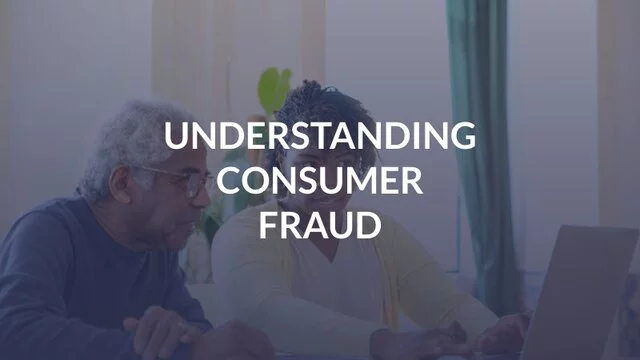
Consumer fraud is an ever-growing threat that affects millions of Americans each year. Recent data shows that one in three people has been scammed in the past year alone, with Americans losing over $12.5 billion to fraud – a staggering 25% increase from the previous year. These numbers reveal not only the widespread reach of scams but also their evolving nature, becoming more sophisticated and difficult to detect.
Consumer fraud occurs when someone uses deception to steal your money or personal information. Scammers often impersonate trusted companies or government agencies to trick you into giving away sensitive data or making payments. Because these schemes can be complex and convincing, even the most cautious consumers can be caught off guard. That’s why understanding the common types of consumer fraud and knowing how to recognize their warning signs are crucial steps to protecting your finances and personal information.
Common Types of Consumer Fraud
Consumer fraud encompasses deceptive or dishonest practices that cause financial or personal harm to consumers. While the specific tactics may vary, many scams share common characteristics: they aim to exploit trust, create urgency, and pressure victims into acting quickly without sufficient verification. Below are some of the most frequent types of consumer fraud currently affecting people nationwide:
Imposter Scams
Fraudsters pretend to be from companies you trust, like your bank or tech support. They create a false sense of urgency, pressuring you to act quickly to “fix” an issue or reverse charges. Often, they ask for personal information such as your social security number or bank account details, information no legitimate company will ever request over the phone or email.
Phishing Scams
These scams use fake emails, texts, or social media messages that look official. They trick you into clicking links that lead to fraudulent websites designed to steal your passwords or install harmful software on your devices. Always avoid clicking links in unsolicited messages and instead visit company websites directly.
Investment Scams
You may be contacted with promises of easy money, high returns, or special deals requiring upfront fees. These are often fake schemes designed to steal your money. Always research any investment offers thoroughly, and never pay fees before verifying the opportunity’s legitimacy.
How to Protect Yourself from Consumer Fraud
Protecting yourself from consumer fraud requires vigilance and adopting a few key habits:
- Be cautious with unsolicited calls or messages. If you receive unexpected communications asking for personal or financial information, do not respond or provide details until you verify the sender’s identity.
- Don’t let urgency cloud your judgment. Scammers thrive on pressuring victims to act immediately. Legitimate businesses will give you time to think and verify claims, and think over your decisions.
- Verify independently. If someone contacts you claiming to be from a company or government agency, hang up and call back using official contact information found on the organization’s website or billing statements.
- Check email addresses carefully. Fraudulent emails often look convincing at first glance but may include small changes to a legitimate bank or company’s name, such as omitting a single letter that a recipient may not notice on a quick glance. Make sure to also review domain names. Legitimate businesses will rarely use a public domain such as @gmail.com or @hotmail.com. Government agencies will always use “.gov” addresses, and most nonprofits use “.org.” Taking a moment to look closely at the sender’s address and domain can help you spot scams before you click.
- Use credit monitoring and fraud alert services. Many banks and third-party services offer free tools that notify you of suspicious activity or changes to your credit report. These can be valuable early warning systems to catch fraud before it escalates.
- Keep your software and devices up to date. Installing updates regularly helps protect your devices from malware and security vulnerabilities that scammers may exploit.
When to Seek Legal Help
While prevention is the best defense against consumer fraud, it’s important to understand what to do if you fall victim. Banks and financial institutions often have policies that make it difficult to recover funds if they determine you authorized a transaction, even if you were scammed under false pretenses. This is why acting quickly and knowing your legal rights is critical.
If you discover unauthorized charges or suspect you have been defrauded, document all communications and transactions, and contact your bank to report the issue following their procedures. Since consumer fraud cases often involve complex federal and state laws, banking regulations, and consumer protections, consulting an experienced attorney can help you navigate these complexities, protect your financial interests, and advocate for you if disputes arise.
- Senior Counsel
Elizabeth Aniskevich is Senior Counsel at Singleton Schreiber in the Class Actions and Consumer Protection practices. Elizabeth leads complex litigation and consumer class actions out of Washington, D.C., with a particular ...

